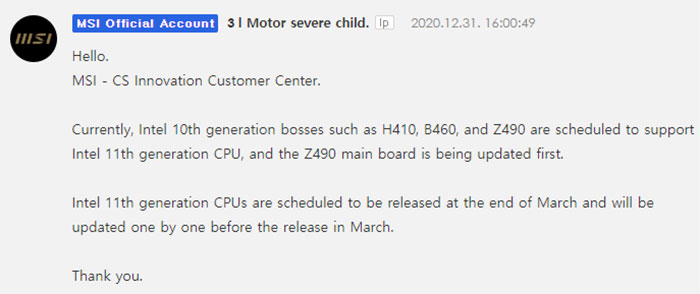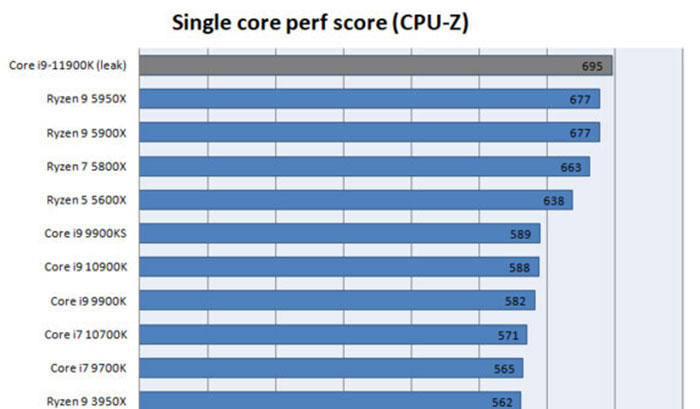An MSI representative in South Korea recently shared some Intel Rocket Lake CPU and motherboard launch information that perhaps wasn't supposed to be public. Yesterday Twitter tech enthusiast @harukaze5719 shared a translation from the Korean Danawa tech forum confirming the launch of RKL-S is going to be "at the end of March". The 'MSI Official Account' entry has since been edited to remove any mention of specific dates – instead leaning on the far vaguer 'this year'.
Back in October last year Intel confirmed Rocket Lake-S would be coming in Q1 2021 in a blog post on Medium. Intel's VP and GM of Client Computing Group Desktop, Workstations and Gaming, John Bonini, penned this introduction and used to confirm RKL-S would "provide support for PCIe 4.0," and be "another fantastic processor for gaming". Other features we know about are that the 14nm+++ RKL-S are that it will feature; back ported Willow Cove cores, support integrated Xe graphics, offer up to 20 lanes of PCIe 4.0, and launch alongside Intel 500 series chipset LGA 1200 motherboards with USB 3.2 Gen 2x2 (20G), Thunderbolt 4, and fast wired/wireless networking support.

Above you can see the statement from the MSI Official Account before it was edited. As you can see the key statement is that "Intel 11th generation CPUs are scheduled to be released at the end of March." MSI also revealed that it has plans in place to release BIOS updates for its Intel 10th gen supporting motherboards (H410, B460, and Z490 chipset) in the runup to the processor launch. It looks like it will be addressing the needs of the premium board purchasers first – starting with BIOS updates on its Z490 motherboards.
Intel and partners like MSI will likely have some 500-Series LGA-1200 motherboards ready sometime around late March too – providing drop-in support for Intel's latest desktop processors.
If you are looking for more recent RKL-S leaks and spills, TechPowerUp recently shared some Intel Core i9-11900K CPU-Z benchmark scores. The leaked scores – add pinch of salt – showed that the RKL-S CPU was "19 per cent ahead of the i9-10900K and 3 per cent ahead of the AMD Ryzen 9 5950X in single-threaded performance," which is encouraging to see.














